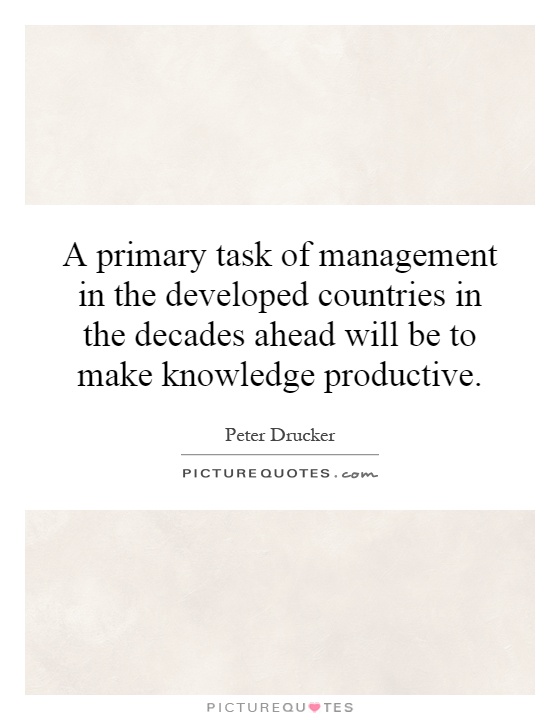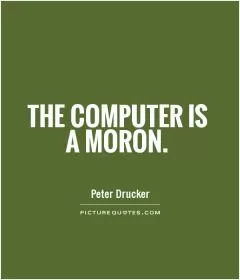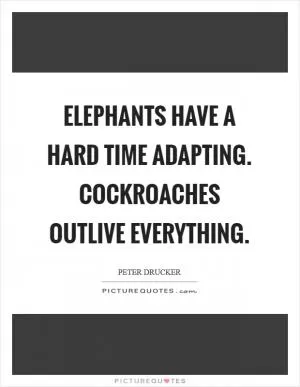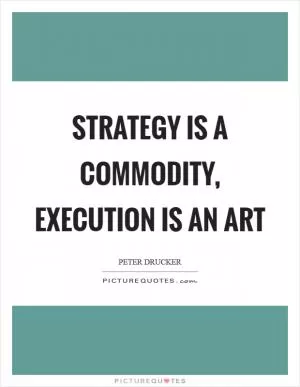A primary task of management in the developed countries in the decades ahead will be to make knowledge productive

A primary task of management in the developed countries in the decades ahead will be to make knowledge productive
Peter Drucker, often referred to as the father of modern management, was a visionary thinker who emphasized the importance of knowledge and innovation in driving organizational success. In his seminal work, "The Age of Discontinuity," Drucker argued that the primary task of management in the developed countries in the decades ahead would be to make knowledge productive. This idea has only become more relevant in today's rapidly changing and increasingly complex business environment.Drucker believed that knowledge was the most valuable resource in the modern economy, surpassing traditional factors of production such as land, labor, and capital. He recognized that in a knowledge-based economy, the ability to generate, acquire, and apply knowledge effectively would be the key to competitive advantage. As such, he argued that management's primary role would be to harness the potential of knowledge within organizations to drive innovation, improve performance, and create value.
One of the key challenges facing managers in the decades ahead is how to effectively leverage the vast amounts of information and expertise available in today's digital age. With the proliferation of data and the rapid pace of technological change, organizations must find ways to sift through the noise and extract actionable insights that can drive decision-making and strategy. This requires not only investing in technology and infrastructure but also developing a culture that values and rewards learning, collaboration, and creativity.
Drucker believed that knowledge could only be made productive through effective management practices that fostered a culture of continuous learning and adaptation. He emphasized the importance of decentralization, empowerment, and accountability in enabling individuals and teams to leverage their knowledge and expertise to drive innovation and performance. By creating a supportive environment that encourages experimentation, risk-taking, and collaboration, managers can unlock the full potential of their employees and drive organizational success.












 Friendship Quotes
Friendship Quotes Love Quotes
Love Quotes Life Quotes
Life Quotes Funny Quotes
Funny Quotes Motivational Quotes
Motivational Quotes Inspirational Quotes
Inspirational Quotes